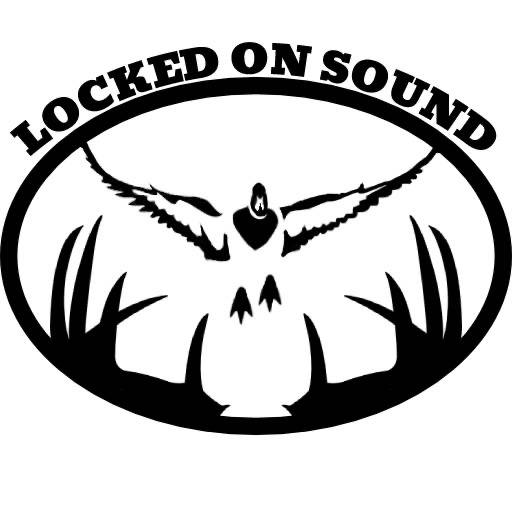Beyond the Whistle: Unleashing Joy and Results in Duck Dog Training
- lockedonsound
- Apr 22, 2024
- 3 min read

The sun paints the marsh in hues of orange and gold, the first hints of autumn kissing the air. Anticipation hangs heavy, not just for the crisp breeze and vibrant foliage, but for the joyous dance between you and your canine companion - the thrill of a duck hunt. But before the proud return with a prize duck held firmly in your dog's grasp, lies a path paved not with fear and dominance, but with the positive power of reinforcement-based training.
Ditch the Domination, Embrace the Celebration:
Gone are the days of harsh corrections and dominance-driven methods. Modern duck dog training embraces a positive reinforcement approach, focusing on rewarding desired behaviors with treats, praise, and play. This fosters a strong bond, trust, and enthusiasm in your dog, making learning a joyful experience for both of you.
Benefits of the Happy Dance:
Faster Learning: Positive reinforcement creates a clear connection between actions and rewards, leading to quicker grasp of commands and desired behaviors. Imagine the frustration of navigating a foreign language without clear context; positive reinforcement provides that clarity for your dog.
Motivation Matters: A happy dog is a motivated dog, eager to please and earn your praise, leading to more engaged and productive training sessions. Think of it like intrinsic motivation in humans; the joy of learning fuels the desire to learn more.
Stronger Bond: Building a positive relationship through rewards strengthens the connection between you and your dog, making training enjoyable and fostering trust. Picture it as building a bridge of understanding and mutual respect.
Confidence Boost: Positive reinforcement builds your dog's confidence, allowing them to approach new challenges and situations with enthusiasm and less stress. Just like overcoming a hurdle builds self-belief in humans, positive training fosters confidence in your canine companion.
Breeds Built for Birding:
While any dog can be trained to retrieve, some breeds excel in duck hunting due to their natural instincts and physical attributes:
Retrievers: Golden Retrievers, Labrador Retrievers, and Chesapeake Bay Retrievers are bred for retrieving, possessing excellent swimming abilities and a strong desire to please. Think of them as natural-born water enthusiasts with an inherent "fetch" drive.
Spaniels: Springer Spaniels and English Cocker Spaniels are known for their flushing abilities and love of water, making them ideal for finding and retrieving waterfowl. Imagine them as agile scouts with an innate understanding of bird behavior.
Pointers: German Shorthaired Pointers and English Pointers excel at pointing and retrieving, offering versatility for upland and waterfowl hunting. Picture them as statuesque hunters with a keen eye for feathered prizes and a willingness to retrieve.
The Dance of Complexity and Consistency:
Duck dog training is a journey, not a destination. Be prepared for setbacks, celebrate small victories, and embrace the complexity of shaping your furry friend into a skilled hunting partner. Remember, patience, consistency, and positive reinforcement are key. Think of it as a marathon, not a sprint; consistent, positive training leads to lasting results.
Here's a roadmap to guide your journey:
Start Early (8-12 weeks): Begin with basic obedience training using positive reinforcement. Introduce your pup to water in a fun and safe way.
Introduce Retrieving (4-6 months): Use toys and positive reinforcement to build the retrieving instinct. Start on land before progressing to water.
Water Confidence (6-12 months): Gradually expose your dog to deeper water, using positive reinforcement and play to build confidence.
Formal Training (1-2 years): Consider consulting a qualified trainer experienced in positive reinforcement and duck dog training. They can guide you through advanced skills like marking, blind retrieves, and handling distractions.
Introduce Shooting (18 months+): Start with low-caliber blanks in controlled environments, gradually progressing to real gunfire. Safety and positive reinforcement are crucial.
Remember:
Frequency: Train in short, focused sessions (10-15 minutes) several times a week, adapting the duration based on your dog's age and attention span.
Keep it Fun: Use games, praise, and treats to maintain your dog's enthusiasm and prevent training from becoming a chore.
Socialize your Dog: Expose your dog to different environments, people, and sounds to ensure they remain calm and focused during hunting situations.
Seek Professional Guidance: Don't hesitate to consult a qualified trainer, especially if you encounter challenges or require personalized guidance.
Ultimately, the reward is not just a retrieved duck, but the joy of the journey, the strengthened bond with your canine companion, and the shared experience of the great outdoors. So, grab your treats, unleash the positive vibes, and embark on the rewarding adventure of duck dog training! Remember, it's about the




Comments